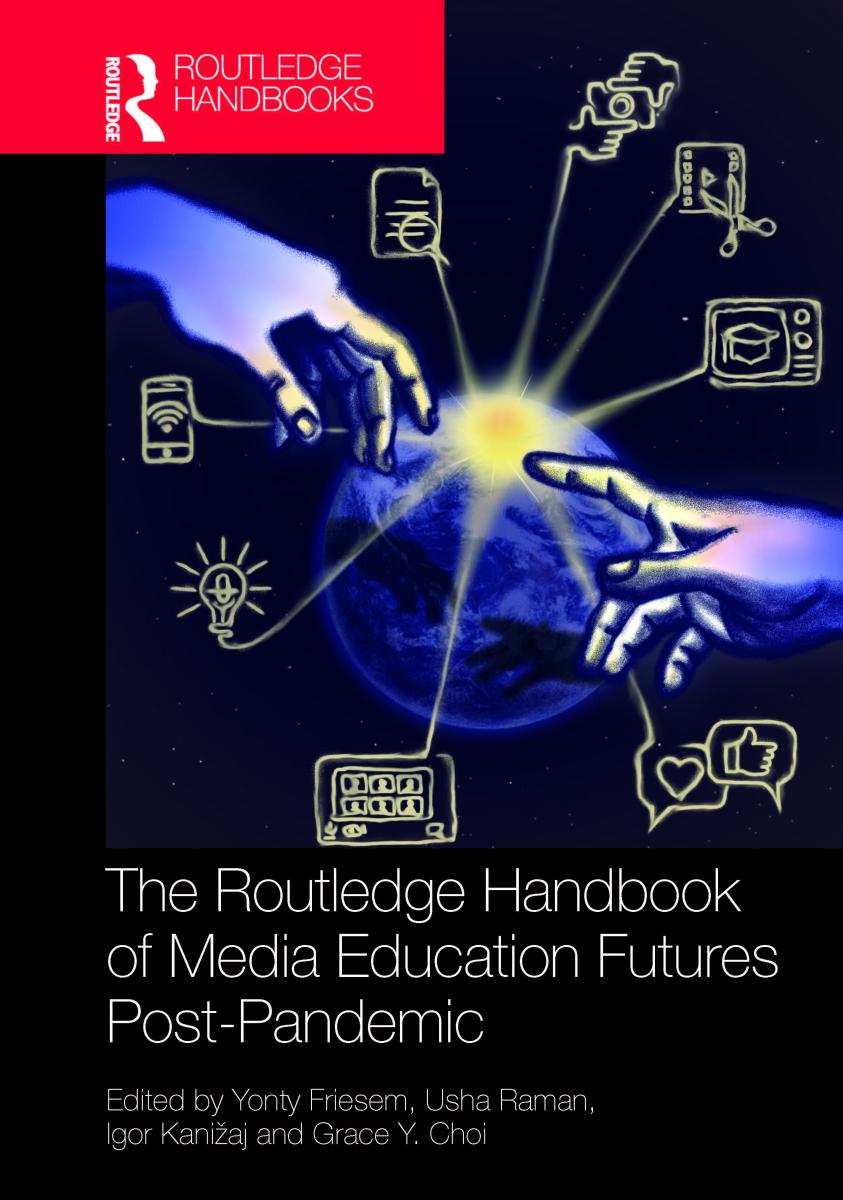 Join hosts Dr. Antonio López as he guides participants in an exploration of ecomedia literacy as a framework for the post-pandemic world, along with introducing some practical applications for how media educators can incorporate ecojustice through ecomedia literacy into their curriculum. The media for discussion is the presenters' essay that explores the theoretical understandings and practical applications of ecomedia literacy as an educational response to our ecological footprint and mindprint. We’ll connect the COVID-19 pandemic with the environmental crisis and demonstrate how education’s technological response to the pandemic contributes to environmental troubles. Specifically, we’ll emphasize that a framework of ecomedia literacy is a framework of ecojustice, ultimately sharing strategies for aligning ecomedia into traditional areas of a media literacy curriculum.
Join hosts Dr. Antonio López as he guides participants in an exploration of ecomedia literacy as a framework for the post-pandemic world, along with introducing some practical applications for how media educators can incorporate ecojustice through ecomedia literacy into their curriculum. The media for discussion is the presenters' essay that explores the theoretical understandings and practical applications of ecomedia literacy as an educational response to our ecological footprint and mindprint. We’ll connect the COVID-19 pandemic with the environmental crisis and demonstrate how education’s technological response to the pandemic contributes to environmental troubles. Specifically, we’ll emphasize that a framework of ecomedia literacy is a framework of ecojustice, ultimately sharing strategies for aligning ecomedia into traditional areas of a media literacy curriculum.
Date: Monday, June 5th, 2023
Time: 12PM EST/ 7PM CET/ 9:30PM IST
SIGN UP here to receive our newsletter with updates and details on media club, webinar series, and teaching resources.
Host:
Antonio López

Antonio López has a research focus on bridging ecojustice and media literacy. He has written numerous academic articles, essays, and books. His most recent book is Ecomedia Literacy: Integrating Ecology into Media Education (Routledge). He is Professor of Communications and Media Studies at John Cabot University in Rome, Italy.
About the Book Chapter: This is a book chapter (number 51) from the Routledge Handbook on Media Education Futures Post-Pandemic Part VII: Civic Media and Participatory Culture
Abstract: This essay explores theoretical understandings and practical applications of ecomedia literacy as an educational response to our ecological footprint and mindprint. It connects the Covid-19 pandemic with the environmental crisis and demonstrates how education’s technological response to the pandemic contributes to environmental troubles. The authors explore how Big Tech positions media literacy as personal responsibility, which diverts accountability from the environmental impacts of technology. When students are trained for the information economy, they are prepared to facilitate the destruction of the planet. But students can learn skills and aptitudes that allow them to meaningfully address the climate emergency. Media education should guide students to deconstruct the myths repeated frequently in commercial media, such as the idea that we are all equally impacted by climate change and we are all equally to blame. The framework of ecojustice argues that in order for our current system to operate--especially the global production chain and lifecycle of technology-- it requires disposable populations and sacrifice zones. The authors offer suggestions for how media educators can incorporate ecojustice and ecomedia literacy into their curriculum and identify strategies for aligning ecomedia into traditional areas of a media literacy curriculum.
Citation: López, A., Redmond, T., & Share, J. (2023). Ecomedia literacy: Ecojustice and media education in a post-pandemic world. In Friesem, Y., Raman, U., Kanižaj, I., & Choi, G. Y. (Eds.). (2023). The Routledge Handbook of Media Education Futures Post-Pandemic. Taylor & Francis.
Please get in touch with us if you want to host future Media Club meetings to discuss a cool book, podcast, video or any media related to our interests.
Jocelyn Young, Webinar Series Manager | jocelyn@mediaeducationlab.com
Devina Sarwatay, Webinar Series Manager | devina@mediaeducationlab.com